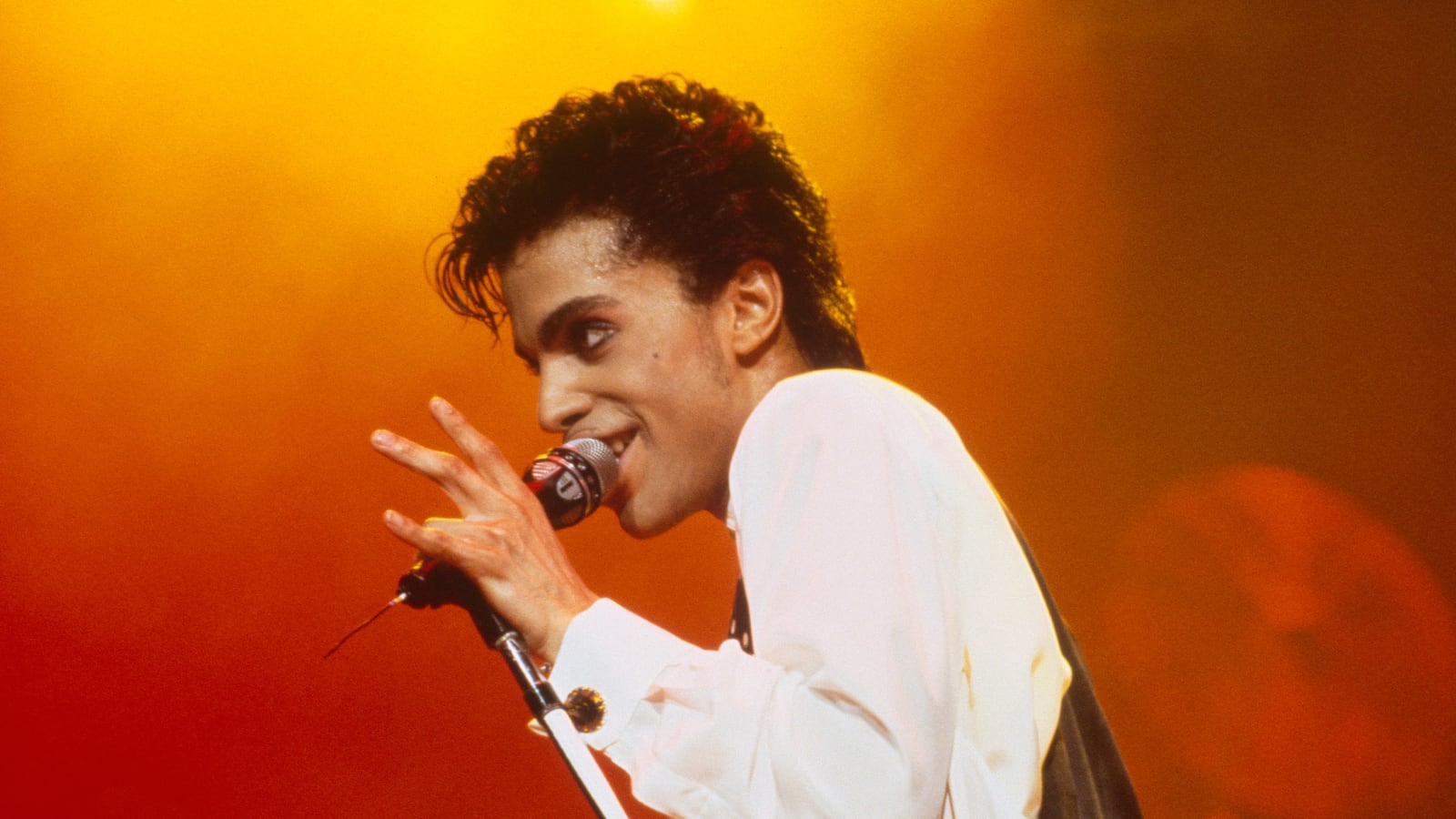When a music icon dies, we grieve with headphones on.
The first stop: Twitter, where we publicly unload our hashtag #sadness. The next stop is more private, more intimate: the playlists in which we revisit their music, mourn to their hits, and groove to their legacy.
It’s perhaps Prince’s greatest legacy that just that—listening to his music in the aftershock of his sudden death Thursday at the age of 57—is so damn hard to do.
“When Doves Cry” is not on Spotify. “Kiss” is not on Apple Music. “Purple Rain” is not on his official station on YouTube or Vevo, because he does not have an official station on YouTube or Vevo—at least not one that hosts his epic catalog of music and videos.
Last summer, in what would be his final middle finger to an exploitative record industry and last act of badassery in a career devoted to championing artists’ rights, Prince withdrew his music from all streaming services except for Tidal.
One month before vacuuming his content from those free services, Prince retweeted an article from The Daily Beast that championed Taylor Swift’s stand against Apple Music because of the service’s initial policy of not paying artists for streams during customers’ free trials.
In his tweet, Prince took a stand against Spotify, quoting the line, “Spotify is co-owned by record labels, who hold 20 percent of the company’s stocks.”
These weren’t acts of an aging rock star who refused to get with the times. In fact, Prince proved willing to embrace streaming services, even releasing his last album exclusively on Tidal and singing the praises of Jay Z’s brainchild. They were—and remain—influential decisions by an influential icon, an icon who just happens to think that artists should be paid for their music.
“The Internet is completely over,” Prince said, famously, in 2010. He had made the executive decision to release his album 20TEN in CD format only (and, at the time, only for free in copies of U.K. paper The Daily Mirror) because he was looking for new ways to distribute his music without leaving his work susceptible to online piracy.
“I don’t see why I should give my new music to iTunes or anyone else,” he said. “They won’t pay me an advance for it and then they get angry when they can’t get it.”
In an interview the following year, he told The Guardian, “We made money [online] before piracy was real crazy. Nobody’s making money now except phone companies, Apple and Google. I’m supposed to go to the White House to talk about copyright protection. It’s like the gold rush out there. Or a carjacking. There’s no boundaries.”
His views on digital music evolved, of course—he had previously condemned it—because evolving is what artists do and what Prince did better anyone. But evolving doesn’t mean caving. For Prince, that means not caving on a stance he’s spent his career supporting.
In 1993, Prince went to war with his record label, Warner Bros. The label was offering him a lucrative contract in exchange for control over masters of his early work and how he releases new material.
The deal went south. As The Daily Beast chronicled in an earlier piece about the battle, Prince was left without control of his work and without the advances he was promised. He rebelled.
He scratched the word “SLAVE” on his cheek for public appearances, and wouldn’t put his name on the work. The unintelligible symbol he went by and the “Artist Formerly Known As…” moniker is a running pop culture joke now, but it was a bold political act then against a label that was trying to put a cap on his output.
He celebrated the end of his relationship with Warner Bros. with a triple CD not-so-subtly called Emancipation.
“A lot of people didn’t know what I was doing, but it helped some people,” Prince has since said about the time. “I don’t look at it as Us versus Them. I did. But you know The Wizard of Oz? When they pull back the curtain and see what’s going on? That’s what’s happened?”
Decades later, Prince was still pulling back the curtain. That’s exactly what he did when he removed his music from streaming services. He was Dorothy before Taylor Swift, who repaved the yellow brick road for up-and-coming musicians when she stood up to Apple Music.
Asked about that pronouncement of the Internet’s death again in 2015, Prince explained his evolution. “What I meant was that the Internet was over for anyone who wants to get paid, and I was right about that,” he told The Guardian. “Tell me a musician who’s got rich off digital sales. Apple’s doing pretty good though, right?”
Prince’s backing of Tidal was deliberate. For all the flak the service has gotten from potential subscribers, he supported its pledge to pay artists for their content. On the day of his death, it’s the only subscription streaming service on which fans can listen to his music.
You want to support his revolution? Maybe today you should pay for his music.





